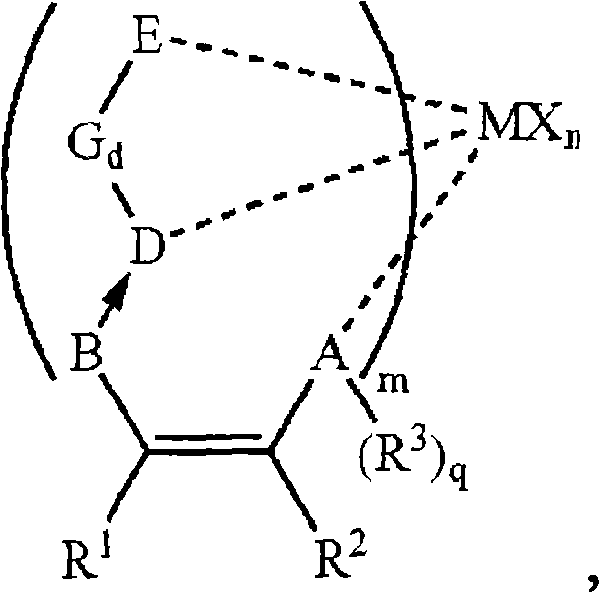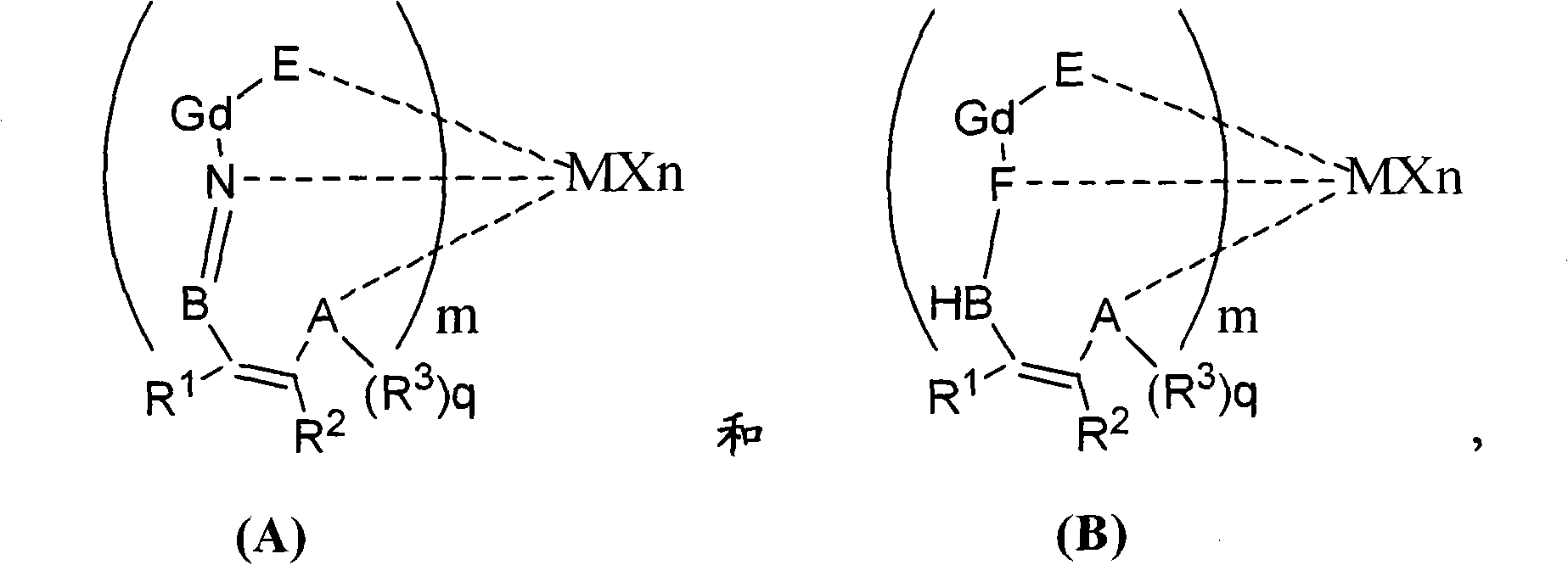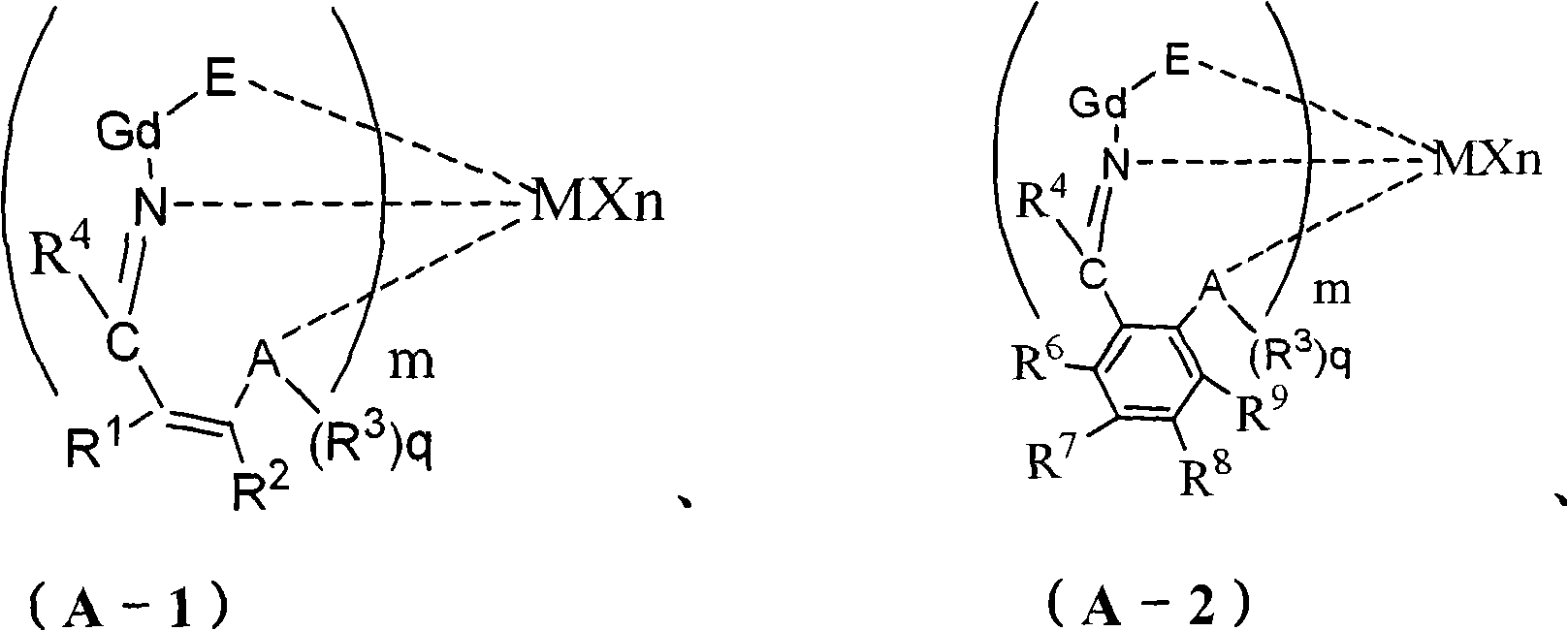Supported non-metallocene catalyst, its preparation method and uses
A non-metallocene, supported technology, used in catalyst activation/preparation, chemical instruments and methods, physical/chemical process catalysts, etc., can solve problems such as low catalytic activity, low olefin polymerization activity, and difficulty in regulation.
- Summary
- Abstract
- Description
- Claims
- Application Information
AI Technical Summary
Problems solved by technology
Method used
Image
Examples
preparation example Construction
[0081] According to the present invention, it relates to a method for preparing a supported non-metallocene catalyst, which includes the following steps: dissolving magnesium compound and non-metallocene complex in a solvent to obtain a magnesium compound solution; The step of mixing the porous carrier with the magnesium compound solution to obtain a mixed slurry; and the step of drying the mixed slurry to obtain the supported non-metallocene catalyst.
[0082] The steps for obtaining the magnesium compound solution will be specifically described below.
[0083] Specifically, the magnesium compound (solid) and the non-metallocene complex are dissolved in an appropriate solvent (that is, a solvent for dissolving the magnesium compound) to obtain the magnesium compound solution.
[0084] As the solvent, for example, C 6-12 Aromatic hydrocarbons, halogenated C 6-12 Solvents such as aromatic hydrocarbons, esters and ethers. Specific examples include toluene, xylene, trimethylbenzene, et...
Embodiment 1
[0224] The magnesium compound is anhydrous magnesium chloride, and the solvent for dissolving the magnesium compound and the non-metallocene complex is tetrahydrofuran. The porous carrier uses silica, that is, silica gel, the model is ES757 of Ineos Company, and the structure of the non-metallocene complex is compound of.
[0225] First, the silica gel is continuously calcined at 600°C under a nitrogen atmosphere for 4 hours to thermally activate.
[0226] Weigh 5g of anhydrous magnesium chloride and non-metallocene complex, add tetrahydrofuran solvent and completely dissolve at room temperature, then add heat-activated silica gel, stir for 2 hours, heat it evenly to 90°C and vacuum dry directly to obtain a supported non-metallocene Metallocene catalyst.
[0227] The mixing ratio is that the mixing ratio of magnesium chloride and tetrahydrofuran is 1 mol: 210 ml; the molar ratio of magnesium chloride and the non-metallocene complex is 1: 0.08; the mass ratio of magnesium chloride a...
Embodiment 2
[0230] It is basically the same as embodiment 1, but has the following changes:
[0231] The porous carrier was changed to 955 made by Grace Company, and it was thermally activated by continuous firing at 400°C under a nitrogen atmosphere for 8 hours.
[0232] Non-metallocene complex use The solvent for dissolving the magnesium compound and the non-metallocene complex was changed to toluene, and the magnesium compound solution was vacuum dried at 100°C.
[0233] The ratio of the magnesium compound to toluene is 1mol:150ml; the molar ratio of the magnesium compound to the non-metallocene complex is 1:0.15; the mass ratio of the magnesium compound to the porous carrier is 1:4.
[0234] The supported non-metallocene catalyst is referred to as CAT-2.
PUM
 Login to View More
Login to View More Abstract
Description
Claims
Application Information
 Login to View More
Login to View More - R&D
- Intellectual Property
- Life Sciences
- Materials
- Tech Scout
- Unparalleled Data Quality
- Higher Quality Content
- 60% Fewer Hallucinations
Browse by: Latest US Patents, China's latest patents, Technical Efficacy Thesaurus, Application Domain, Technology Topic, Popular Technical Reports.
© 2025 PatSnap. All rights reserved.Legal|Privacy policy|Modern Slavery Act Transparency Statement|Sitemap|About US| Contact US: help@patsnap.com



